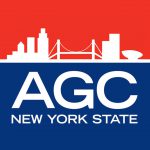Court Grants Employer’s Motion for Summary Judgment Dismissing Third-Party Complaint in Labor Law Action
published on February 11, 2026
Court Grants Employer’s Motion for Summary Judgment Dismissing Third-Party Complaint in Labor Law Action
published on February 11, 2026
In a decision dated February 9, 2026, Hon. Phaedra F. Perry-Bond of the New York County Supreme Court granted our client Atlantic Cooling Technologies and Services, LLC’s motion for summary judgment dismissing the third-party complaint asserted against it in a Labor Law action arising from an alleged fall inside a cooling tower at a Manhattan commercial property. The plaintiff commenced the action against the owner and related entities, alleging that he sustained injuries while performing work on a cooling tower at 399 Park Avenue. The property owner, the Board of Managers of the 399 Park Avenue Condominium, subsequently commenced a third-party action for contractual indemnification, common law indemnification, contribution and breach of contract for the failure to procure insurance against the plaintiff’s employer, Atlantic, which had been retained in connection with cooling tower services at the premises. The Court granted Atlantic’s motion to dismiss the third-party complaint in its entirety holding that the contractual indemnification provision relied upon by the owner was unenforceable under General Obligations Law §5-322.1 because it was overly broad and required indemnification even where the owner’s own negligence may have contributed to the accident. The Court further dismissed the owner’s claims for common law indemnification and contribution, finding that such claims were barred by Workers’ Compensation Law §11, as the plaintiff did not sustain a “grave injury” within the meaning of the statute. The Court also dismissed the breach of contract claim for failure to procure insurance, concluding that the record did not support a viable claim against Atlantic. As a result of the Court’s decision, Atlantic was dismissed from the action.
Robert Olecki v. BP 399 Park Avenue, LLC, et al., Index No. 159112/2021 (Sup. Ct. N.Y. Co. Feb. 9, 2026)
We are pleased to announce that Courtney B. Feldman has rejoined the Firm as a Partner.
published on January 26, 2026
We are pleased to announce that Courtney B. Feldman has rejoined the Firm as a Partner.
published on January 26, 2026
We are pleased to announce that Susan B. Eisner has become a Partner of the Firm.
published on January 02, 2026
We are pleased to announce that Susan B. Eisner has become a Partner of the Firm.
published on January 02, 2026
Congratulations to Tom Hall who obtained a directed verdict after a three-week liability trial in Nassau County Supreme Court.
published on November 21, 2025
Congratulations to Tom Hall who obtained a directed verdict after a three-week liability trial in Nassau County Supreme Court.
published on November 21, 2025
The case involved a union electrical lineman who was burned while working on live overhead power lines for a local utility company when he accidentally crossed phases causing an arc flash. FCH’s client, the energy service company which employed the plaintiff, was impleaded by the utility. At the close of the plaintiff’s case, Tom joined in the motion for a directed verdict made by counsel for the utility. The trial court granted the motion concluding that the plaintiff failed to make out a prima facie case on any of his causes of action including common law negligence and violation of Labor Law §§200 and 241(6).
Congratulations to firm partners Joanne Blair and Mike Fabiani on recently securing two favorable verdicts for FCH clients at trial.
published on November 18, 2025
Congratulations to firm partners Joanne Blair and Mike Fabiani on recently securing two favorable verdicts for FCH clients at trial.
published on November 18, 2025
Joanne recently tried a premises liability case in Bronx County Supreme Court where the plaintiff had made a multimillion dollar demand prior to beginning trial. After a hard-fought trial, Joanne obtained a verdict awarding the plaintiff less than 5% of his demand.
Mike recently tried a case in New York County arising out of a construction site accident. Not only did Mike obtain a verdict for less than 25% of the plaintiff’s last demand, but he also successfully convinced the jury that the plaintiff was 40% at fault, reducing the total verdict to less than 15% of the plaintiff’s demand.
Great work Mike and Joanne!
First Department Affirms Dismissal of Plaintiff’s Complaint Finding That Defendants Were Not Liable For A Dangerous Condition Plaintiff Was Hired to Remedy
published on October 16, 2025
First Department Affirms Dismissal of Plaintiff’s Complaint Finding That Defendants Were Not Liable For A Dangerous Condition Plaintiff Was Hired to Remedy
published on October 16, 2025
In a unanimous decision dated October 9, 2025, the Appellate Division, First Department affirmed the lower court’s dismissal of the plaintiff’s claims under Labor Law §§200 and 241(6) and for common law negligence against our clients, Downtown NYC Owner, LLC, Clarion Partners, LLC, Murray Hill Properties LLC and MHP Real Estate Services LLC. The plaintiff claimed that he tripped on debris, specifically discarded tiles, while he was pushing a cart of the tiles and other debris. The defendants were able to show that the debris he allegedly tripped on was the very same debris he was hired to clean up. The plaintiff unsuccessfully argued that the act of pushing the cart and the actual cleanup of the debris were two separate jobs. However, this argument was rebutted by the defendants who showed that plaintiff’s employer, and the plaintiff specifically, were hired to clean up the debris and, as such, could not hold the defendants liable for any dangerous condition the plaintiff was hired to remedy.
Luis Murillo v. Downtown NYC Owner, LLC et al., – N.Y.S.3d –, 2025 WL 2857067, 2025 N.Y. Slip. Op. 05574 (1st Dep’t 2025)
Court Denies Plaintiff’s Motion for Summary Judgment on Labor Law §240(1) Claim, Grants Defendants’ Motion for Summary Judgment Dismissing Plaintiff’s Labor Law §200 and Negligence Claims and Grants Defendants Contractual Indemnity Against Plaintiff’s Employer in Construction Accident Case Involving a Fall From a Scaffold
published on October 15, 2025
In a decision dated October 8, 2025, Hon. Karen Lin of Queens County Supreme Court denied the plaintiff’s motion for partial summary judgment on his Labor Law §240(1) claim, granted our clients Archstone Builders LLC, 460 Rollover Sub LLC, and 460 W34 Owner LLC’s motion for summary judgment dismissing plaintiff’s Labor Law §200 and common law negligence claims and granted our clients’ motion for contractual indemnity against plaintiff’s employer, Metro R Services Inc. The defendants, 460 Rollover Sub LLC, and 460 W34 Owner LLC, owned the premises and contracted with Archstone as the general contractor to provide certain construction and renovation work at the premises. Archstone subcontracted with plaintiff’s employer, Metro, to perform façade repair work. In his capacity as a non-union mason, the plaintiff claims that while he was kneeling down on the platform of a scaffold accepting a bucket of materials from a co-worker on the ground, the guardrail of the scaffold broke, causing him to fall to the ground below. The Court denied the plaintiff’s motion and granted our clients’ motion in its entirety. The Court also denied Metro’s motion seeking dismissal of plaintiff’s complaint and the third-party complaint. In denying plaintiff’s motion, the Court found issues of fact regarding whether the plaintiff should have been tied off and whether plaintiff had knowledge that his co-worker removed the guardrail post pin in order to facilitate the work. With regard to our clients’ indemnity motion, the Court found a clear and enforceable indemnification provision in the Archstone/Metro purchase order.
Jorge Tiniganay v. Archstone Builders LLC et al., Index 711681/2020 (Sup. Ct. Queens Co., Oct. 8, 2025)
Court Denies Plaintiff’s Motion for Summary Judgment on Labor Law §240(1) Claim and Grants Defendants Summary Judgment Dismissing Plaintiff’s Labor Law §§240 and 241(6) Claims Where Sanitation Truck Driver Was Struck By a Falling Wooden Pallet
published on October 10, 2025
Court Denies Plaintiff’s Motion for Summary Judgment on Labor Law §240(1) Claim and Grants Defendants Summary Judgment Dismissing Plaintiff’s Labor Law §§240 and 241(6) Claims Where Sanitation Truck Driver Was Struck By a Falling Wooden Pallet
published on October 10, 2025
In a decision dated October 8, 2025, Hon. Dakota Ramseur of New York County Supreme Court denied the plaintiff’s motion for partial summary judgment on his Labor Law §240(1) claims and granted our clients MIP One Wall Street Acquisition LLC and J.T. Magen & Co. Inc.’s motion for summary judgment dismissing the plaintiff’s Labor Law §§240(1) and 241(6) claims. MIP One Wall Street owned the premises and contracted with J.T. Magen as the general contractor to provide certain construction and renovation work at the premises. J.T. Magen subcontracted with non-party Independence Carting Inc., a sanitation company that employed the plaintiff, to remove waste and debris from the premises. In his capacity as a sanitation truck driver, the plaintiff claims that he was struck by a falling wooden pallet, which had been positioned at the edge of an elevated platform, as he was collecting debris from a loading dock at the premises. The Court denied the plaintiff’s motion and granted our clients’ motion in its entirety. The Court found that, as a sanitation truck driver, the plaintiff was not on the premises to perform construction work and he was therefore not within the class of workers protected by the Labor Law because the work he was performing at the time of the alleged accident was not an enumerated activity which was protected under either Labor Law §§240(1) or 241(6). Even assuming, as the plaintiff maintained, that he was responsible for loading debris and construction material onto the truck, in addition to driving the truck to the loading dock, the Court found that none of that work could be considered ancillary to the enumerated activities – erection, demolition, repairing – so as to fall within the ambit of the statutes.
Krysztof Lapinski v. MIP One Wall Street Acquisition LLC et al., Index 150585/2022 (Sup. Ct., N.Y. Co., Oct. 8, 2025)
Court Denies Plaintiff’s Motion for Summary Judgment on Labor Law §240(1) Claim, Grants Defendants Summary Judgment Dismissing Plaintiff’s Labor Law §§200 and 241(6) Claims and Grants Defendants Contractual Indemnification Against Third-Party Defendant
published on October 09, 2025
Court Denies Plaintiff’s Motion for Summary Judgment on Labor Law §240(1) Claim, Grants Defendants Summary Judgment Dismissing Plaintiff’s Labor Law §§200 and 241(6) Claims and Grants Defendants Contractual Indemnification Against Third-Party Defendant
published on October 09, 2025
In a decision dated October 8, 2025. Hon. Paul A. Goetz of New York County Supreme Court denied the plaintiff’s motion for partial summary judgment on his Labor Law §240(1) claims and granted our client, J.T. Magen and RXR Realty’s motion for summary judgment dismissing the plaintiff’s Labor Law §§200 and 241(6) claims as well as granting our clients contractual indemnification against third-party defendant, Toprock Interiors, Inc. The plaintiff, an employee of Toprock, claims that he fell when he was climbing down from a duct to his ladder when the ladder tipped over causing him to fall. The Court held that the plaintiff established his entitlement to summary judgment by claiming the ladder was not suitable for the work. The defendants were able to rebut the plaintiff’s showing by demonstrating, through an affidavit of a co-worker, that there was a question of fact as to whether the plaintiff was involved in an accident at all and that there was other contradictory testimony that demanded the Court deny the plaintiff’s Labor Law §240(1) claim. The Court also dismissed the Labor Law §200 claims because it was shown that our clients did not direct or supervise the plaintiff’s work. It further granted the defendants contractual indemnity against Toprock based upon the “arising out of” language in the contract and the fact that our clients only had potential liability stemming from a statutory violation.
Bentley Harry v. J.T. Magen & Company Inc. et al., Index No. 157592/2020 (Sup. Ct. N.Y. Co., Oct. 8, 2025)
Court Grants Defendants Summary Judgment Dismissing Plaintiff’s Complaint in Case Involving Trip and Fall on Raised Sidewalk Flag
published on August 08, 2025
Court Grants Defendants Summary Judgment Dismissing Plaintiff’s Complaint in Case Involving Trip and Fall on Raised Sidewalk Flag
published on August 08, 2025
In a decision dated August 5, 2025, the Hon. John J. Kelley of New York County Supreme Court granted our clients Verizon New York Inc. and Network Infrastructure Inc.’s motion for summary judgment dismissing the plaintiff’s complaint as a matter of law. The plaintiff alleged that she tripped and fell on the sidewalk adjacent to 4960 Broadway, New York, New York when the front of her right foot stubbed into an allegedly elevated sidewalk flag, causing her to lose her balance and fall forward. It was claimed that while running conduit from a manhole in the street through the sidewalk and into an adjacent building pursuant to a contract with Verizon, Network Infrastructure damaged or displaced the sidewalk flags and created the condition which caused plaintiff’s accident. At her deposition, plaintiff examined a photograph of the location where her accident occurred and identified the sidewalk flag which caused her to trip and fall. Subsequently, at the deposition of Network, the on-site coordinator was able to identify which sidewalk flags Network had actually performed work on based on the color and appearance of the new flags. Plaintiff’s testimony clearly placed the condition which caused her accident on a sidewalk flag which Network did not work on. The Network witness was also able to testify that the work which Network performed would not have damaged any adjacent flags. In opposition to the motion, plaintiff argued that a question of fact existed as to whether Network’s work on adjacent flags could have displaced or damaged the flag where plaintiff’s accident occurred. However, the Court found that plaintiff’s speculative assertion that Network’s excavation work could have damaged the sidewalk flag failed to raise a triable issue of fact. In light of the foregoing, the Court granted Verizon and Network Infrastructure summary judgment dismissing the plaintiff’s complaint because there was no evidence to support plaintiff’s contentions that they created the tripping hazard which caused her accident.
Maria B. Lugo v. 4690 Broadway, LLC et al., Index No. 152691/2020 (Sup. Ct. N.Y. Co., Aug. 5, 2025)








